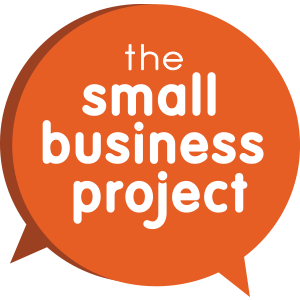The Charted Institute of Marketing have brought together some really nice examples of how, for big business, learning from SMEs might be very effective advice.
Many creative ideas, viral marketing and innovative campaigns have started life small, and having the ability and flexibility to be truly innovative and creative is often a trait of young and small business. Being nimble, pioneering and sustainable are other characteristics of entrepreneurial small business – and particularly qualities big businesses could do with learning from SMEs.
In the CIM’s special ‘Marketing Sustainability’ report they spoke to three thriving SMEs who have made sustainability one of their key focuses. By being sustainable they have found new marketing opportunities and new business. Here are the three SMEs the report featured.
Wyke Farm
About: Wyke Farm is muti-award winning producer of cheese and butter.
How they’re sustainable: The business is building a renowned reputation for pioneering practices, such as all energy in production coming from solar and biogas. This SME also encourages workers to continually develop sustainable innovations.
What they say: Richard Clothier, managing director said: “A lot of corporates that I speak to, particularly efficient ones that are good at lean manufacturing models, struggle with the concept of sustainability. There is often a myth that it will cost more or complicate the business. But SMEs like ours show that if you develop things incrementally, if you’re authentic and are prepared to invest in a sustainable model, you can grow the business and make it more appealing to customers.”
“The reality is that when you adapt the marketing strategy so that sustainability is at its core, the net positive impact becomes more apparent. It can actually yield savings and efficiencies that you would never achieve using a lean manufacturing strategy alone.”
Falcon Coffees
About: Flacon Coffees are coffee sourcers and producers with a focus on positive social impact.
How they’re sustainable: Falcon collaborate with larger organisations in order to build a strong and sustainable supply and operations chain. They consider how they might be able to assist or improve each stage, whether it’s the local farmers or the packagers. This creates an authenticity and a resilient system; one that stands up to their competitors. In fact, Falcon have beaten M&S and Starbucks to creating relationships with several small suppliers.
What they say: “We’re absolutely boxing above our weight,” says Falcon’s chief executive Konrad Brits, “and it’s down to our sustainability and collaborative approach. Everybody is selling coffee now. It’s no longer about what you sell, but how you deliver it. That’s key for marketers. You need even more than just great customer service to survive. Authenticity and purpose are more than buzzwords to a millennial audience. Sustainability has become the digital – against the unsustainable analogue business models of the past. And SMEs can lead the way.”
Páramo Directional Clothing
About: Páramo are an outdoor clothing designer and innovator.
How they’re sustainable: Through clever investment in research and development, Páramo have been able to differentiate. Almost all water repellent clothing contains polyfluorinated compounds (PFCs) – not good for the environment – but Páramo’s clothing doesn’t. This has lead to affiliations and praise from the likes of Greenpeace and award nominations from the likes of The Guardian Sustainable Business Awards.
What they say: Marketing Manager Catherine Whitehead said: “We take this approach because it matters, not always for pure profit reasons. We set out to show our approach works, and works better. It sets us apart, and that’s key for an SME. SMEs can play it safe, but sometimes the best option is to be brave and bold.”
Original source: Charted Institue of Marketing
